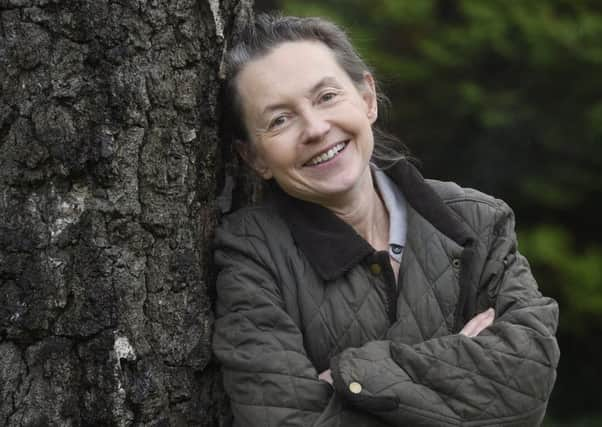Book review: Caroline's Bikini, by Kirsty Gunn


In one sense certainly Caroline’s Bikini might be described as a conventional romantic fiction, a classic story of immediate, intense, but (alas) unrequited love. Returning from the US and becoming, improbably, a lodger in a large house in Richmond, the middle-aged Evan Gordonstone, a successful banker, is smitten – bang, just like that – with love for the glamorous former equestrian star Caroline Beresford. So the question is the classic one of a certain sort of novel or movie – will he win her heart? Given the setting, you might have Hugh Grant playing Evan, or stepping back in time, that other Grant, Cary, with Katherine Hepburn or perhaps Grace Kelly as Caroline. And very nice this would be too.
However, Caroline’s Bikini isn’t that kind of novel (though unquestionably that kind of film might still be extracted from it). It is first of all a novel about making a novel, which, again, is quite suitable for this Year of Spark, since some of her books, in her middle period especially, can be read as that sort of thing. Nevertheless she did not make this as evident as Kirsty Gunn does – you might read and enjoy Not To Disturb or The Hothouse by the East River without quite being aware of what Spark was up to. Gunn, in contrast, leaves you in no doubt. There’s an introduction in which she puts the word novel in quotation marks, promises some discussion about the definition of fiction, and draws our attention to some “additional sections” that you may also want to visit as part of your reading.
Advertisement
Hide AdThere is a narrator, Emily, known by Evan as “Nin,” a freelance writer of reviews, essays and advertising copy. She is not only Evan’s confidante, but also seems to direct the show. It is Emily who, having told us that Evan “is struck, as the ancients would have it, by fate as though by a dart from Cupid’s bow,” then adds that there is much more information to be had about “this concept” and the “practices of a formal romantic tradition under the heading ‘Courtly Love’” in the notes at the back of the book. And so it goes.
One reads the book with a purring pleasure, relishing Gunn’s cleverness, wit, range of reference and literary sensibility. Sometimes, perhaps, she overdoes it. When she has Evan telling Emily of an episode when Caroline was sitting weeping on his bed and he wanted but was unable to indulge “in a full expression of courtly love”, it’s not really necessary to remind us in a footnote that we know by now this is “a theme running all the way through this book, Petrarch’s Canzoniere as a metaphor and inspiration for Caroline’s Bikini, and so on”. And so on, indeed.
There’s a sort of Nabokovian peacocking in Gunn’s work, a self-conscious artistry, a love of displaying the author’s gifts and indeed fine sensibility too. The writing is invariably clever, often seductively so, yet at the same time irritating. The characters are puppets, without vitality. Nabokov insisted on his control of his characters; they crossed the road when he told them to. This is one reason why one doesn’t care a damn about them. Here we are told about the agonies of Evan’s unrequited love, but there is no immediacy to it, because Evan is never more than a name on the page. I would suppose that Gunn might reply that there is no reason why he should be more than that; he’s in a different sort of novel. This is fair enough.
Gunn is, besides being a novelist and Scotsman columnist, professor of writing practice and study at the university of Dundee; and she has written a very clever book which will provide rich material for study and practice. Miss Brodie got it right.
Caroline’s Bikini, by Kirsty Gunn, Faber & Faber, 335pp, £14.99